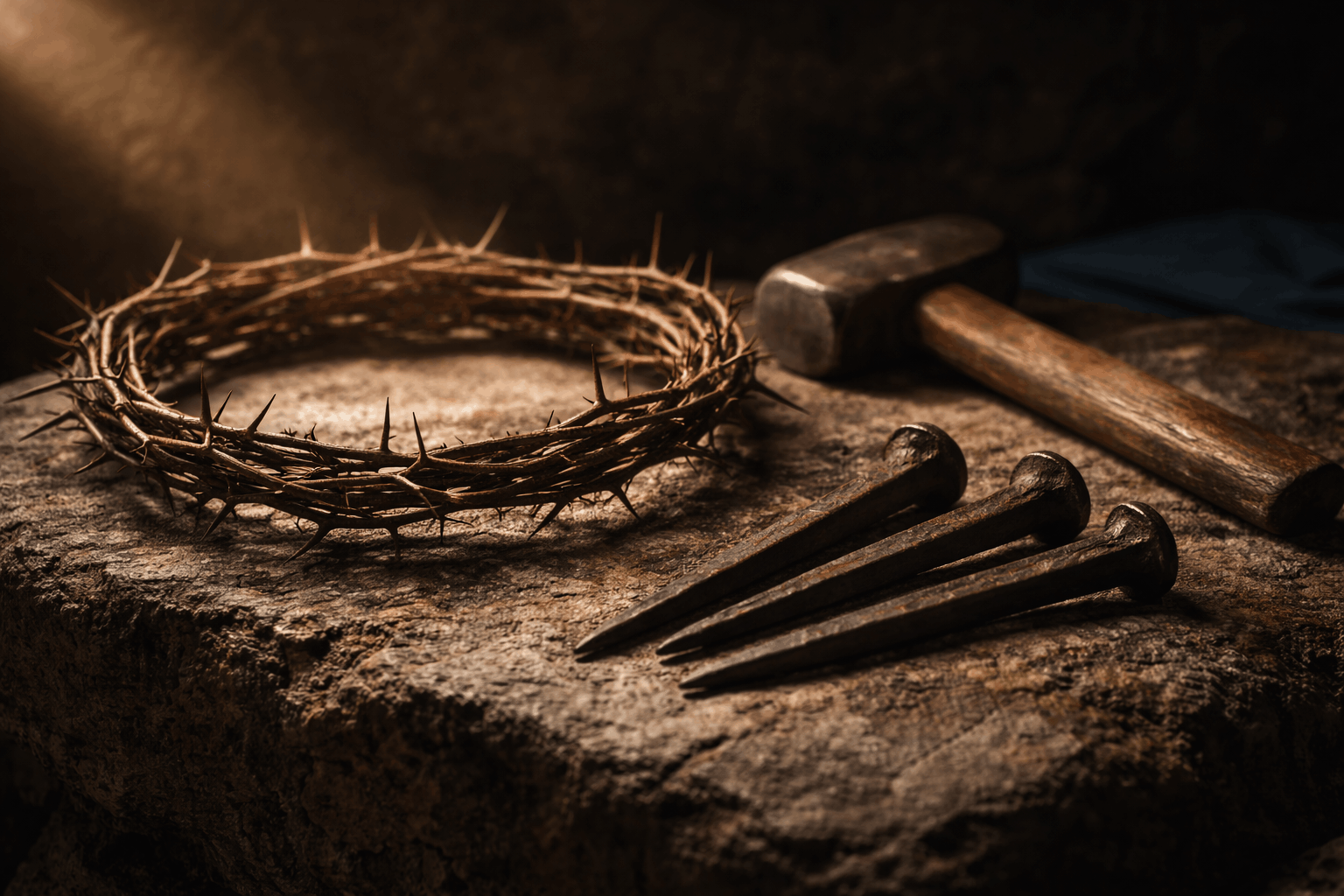Compiled and edited by Fr. Ron Gagne, M.S.
Introduction
We look and listen to the sights and sounds of Mary’s appearance and words at La Salette. We notice the instruments of the passion on either side of the glowing crucifix on her breast on that summer Saturday morning of September 19, 1846.
Her repeated mention of “my Son” during her tearful apparition underscores that her own Son’s passion is woven into the message and history of her visit to La Salette. Her merciful message contains references to her own suffering for the sake of her children and is based on her enduring love of her Son:
“If my people refuse to submit,
I will be forced to let go the arm of my Son.
It is so strong and so heavy, I can no longer hold it back.
How long have I suffered for you!”
She mentions that if her children are converted to the ways and message of her Son, great blessings will follow:
“If (my children) are converted, rocks and stones will turn into heaps of wheat, and potatoes will be self-sown in the fields.
She reminds us of basic Catholic practices, such as weekly Mass, respect for the name of the Son, and the Lenten habits of faith (including prayer and fasting), like the Stations of the Cross.
Within a short time after her merciful apparition, the pilgrims flocked to the place of the apparition. They erected the Stations of the Cross in the form of simple wooden crosses (as seen below from an actual photo from 1864 or 1868 of the wooden crosses on the Holy Mountain), tracing her path from the bottom of the Sezia Valley to her final moment on the top of the hillside and her parting words:
“Very well, my children, make this (message) known to all my people.”
Mary was asking us to treasure her message and make it known through our lives of faithfully following her Son more closely.
The History of the Stations of the Cross.
The long history of devotion to her Son’s Passion and death in the form of the Way of the Cross is familiar to most Catholics. Our Stations of the Cross (or Way of the Cross) have a very long history. It began in Jerusalem, when pilgrims commemorating Jesus’ Via Dolorosa (Sorrowful Way) walked the streets where he made his way to Calvary and his death. After the destruction of Jerusalem in 70AD and the eventual Muslim conquest of Palestine, it became unsafe to travel to Jerusalem.
With the legal acceptance of Christianity by the emperor Constantine in 313AD, he erected the Church of the Holy Sepulcher at the place of Jesus’ crucifixion and death. Soon after, pilgrims began to make their way in a prayerful procession. Pilgrims in Jerusalem eventually followed a fixed route from the ruins of the Fortress Antonia, where Pilate had his judgment hall, to the Church of the Holy Sepulcher.
About a thousand years later, devotion to the Way of the Cross began in earnest with the Franciscan Friars, who received custody of the holy sites in the Holy Land. Several centuries later, Pope Innocent XI, in 1686, permitted the Franciscans to set up the commemorative Stations in all churches. Some 400 years later, Stations were allowed in all churches for those who could not visit Jerusalem.
Our new La Salette Scriptural Stations of the Cross…
Today, our Stations of the Cross has become a standard habit of faith, especially on Fridays during Lent. In 1991, on Good Friday, Pope St. John Paul II introduced a Scriptural Way of the Cross for the celebration at the Colosseum in Rome, a tradition that continued for several years.
This updated devotion to the Scriptural Stations of the Cross aims to deepen faith and encourage empathy towards Christ’s sacrifice. It commemorates Jesus’ journey to the crucifixion. It consists of 14 stations, each representing a significant event from Jesus’ trial to burial. Participants typically meditate or pray at each station, reflecting on Jesus’ suffering.
With all this in mind, we offer our new La Salette Scriptural Stations, keeping Mary’s words in mind to follow her Son. These new Stations keep to the text of the scripture, recalling the fateful journey of Jesus from his arrest to his death on the cross for love of us.

